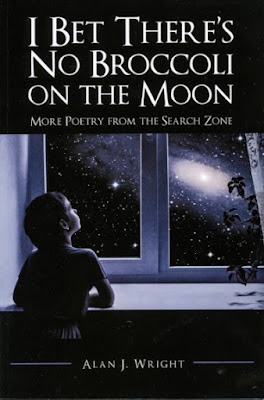Teaching Young Writers To Think About Titles
A Good Title Is Vital
I once taught a young writer, Paul, who presented a wonderful true story he had written concerning the time he and his younger brother had been wandering through a muddy construction site in the midst of winter. Their youthful curiosity brought them to the edge of a large muddy hole. While peering down Paul (the author) managed to slip and fall into the muddy depths. He soon realized he was stuck when it proved impossible to scale the slippery muddy sides of the hole. He tried repeatedly to escape, but continually failed to negotiate his way out of the hole. He urged his younger brother to run for help. His brother managed to enlist the aid of a security guard at the nearby shopping mall. The guard brought a ladder and the situation was immediately eased for the boy trapped in the hole.
The story was well written and the young author had built the tension using a strong sense of voice throughout the text. The only problem was, he could not settle on a suitable title. He pondered this for several days. In a smart move he then asked several of his classmates to read the story and then think about what they would choose as a fitting title. He came to me one morning during our writing workshop, his face beaming. ‘I’ve decided to call it ‘Oops!’ He had landed on a most suitable title. A single word title he, the author, was most happy with. Having devoted time to considering what worked best for his written efforts, the process had delivered a title so suitably apt for his story. Rather than confusing the potential reader, the one word title provided readers with an accurate clue to what the story would deliver.
I recall a student asking a teacher for help with a title for a piece about a recent storm that caused quite some damage in the local area. Somewhat dismissively the teacher fobbed the writer off with- ‘Oh just call it The Storm.’ -a rather generic title and hardly an attention grabber. We must encourage writers to devote time to devising titles that do the necessary work of attracting readers.
When writing my second poetry anthology, I had completed the manuscript and still hadn’t been able to settle on a title. I made lists of possible titles. I designed various cover pages using possible titles in my writer’s notebook. I spent an inordinate amount of time thinking about potential titles, -rolling them around in my head before finally settling on, ‘I Bet There’s No Broccoli On The Moon.’ The process had taken me at least two months. A big time investment, but I just knew it had to have a catchy title. A title that grabbed some attention. A title is a reader’s first contact with your written piece. It must invite further examination on the part of that reader.
Some young writers labour under the misconception that they need a title in order to commence writing. Let’s disavow them of this false orthodoxy. They need an idea to start writing, not a title. Encourage them to start writing and see if the title pops up in the process. Often the title arises during this composition phase. Sometimes it emerges after the writing is completed. Our practices around titles, just like every other aspect of the writing process should be grounded in authentic practice.
Young writers need encouragement regarding titles. Collect some book titles you believe to be inviting. Share your thinking. Them invite your students to do the same. Encourage
What do good titles for books have in common?
· They intrigue and entice the reader
· A title might ask a question, thus encouraging readers to wonder how, why, who, or what the title refers to.
· The title needs to connect with its genre. A title such as Raiders From the Outer Galaxy is not likely to be a memoir.
· They are mostly of a sensible length, although long titles can work —The Curious Incident of the Dog in the Night, Mark Haddon’s book is a good example.
· The aim is for your readers to have some idea what’s going on, without too much being revealed. It’s a taste of what’s to come. The title needs to tantalize and arouse curiosity.








Thanks for sharing your thoughts about titles. I find creating titles to be challenging much of the time--and then occasionally they just pop up fully formed. I appreciate your list of what good titles have in common--and your samples, too.
ReplyDeleteThank you Susan. I'm glad you found support in my words concerning titles.
Delete